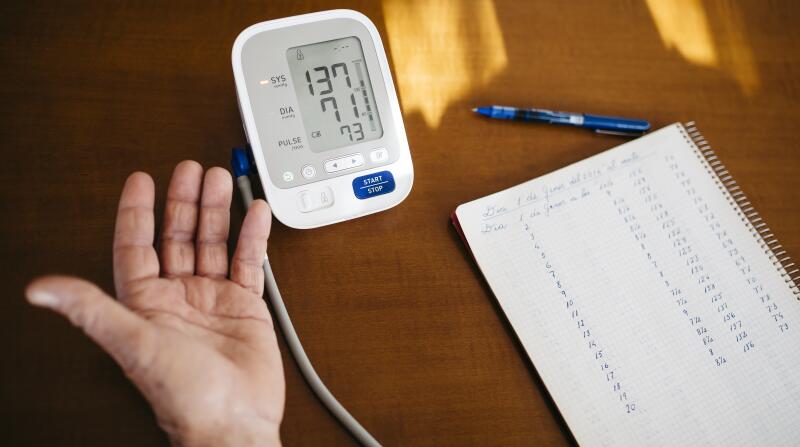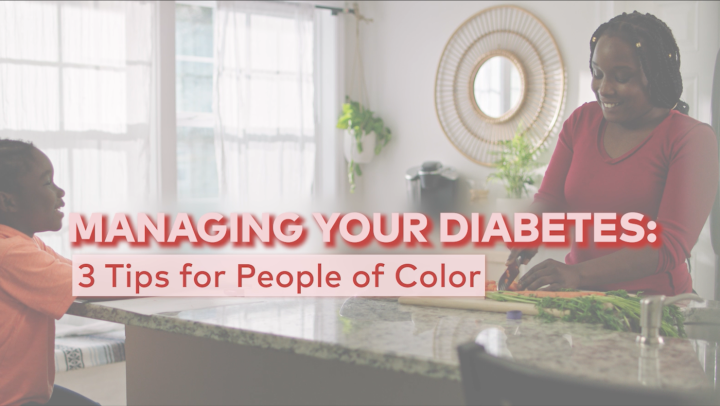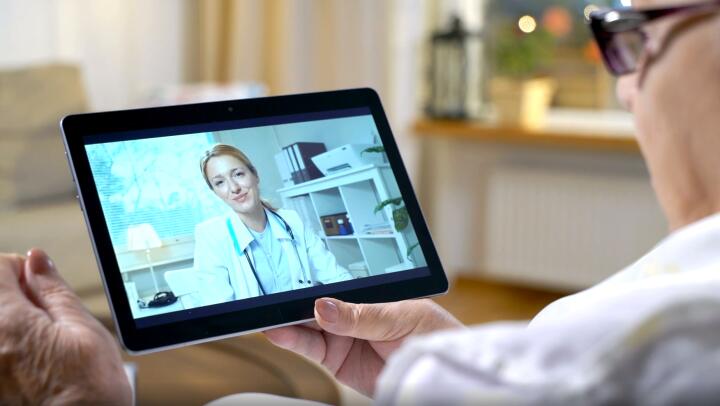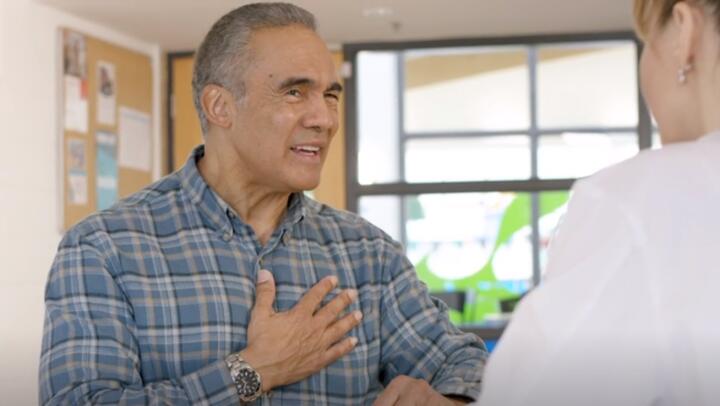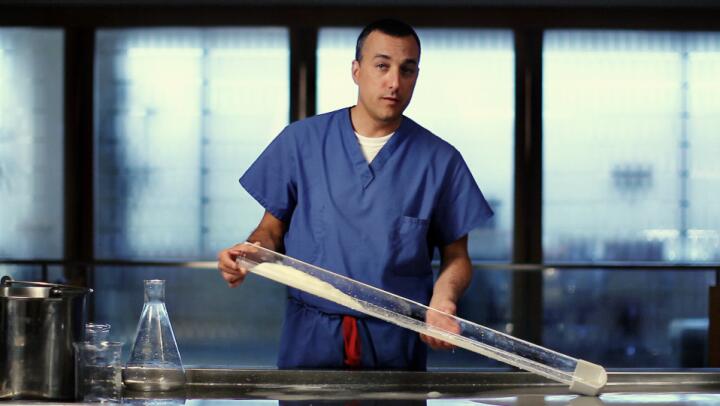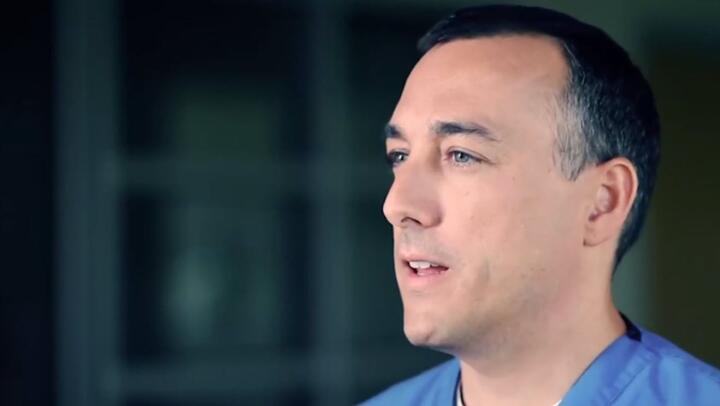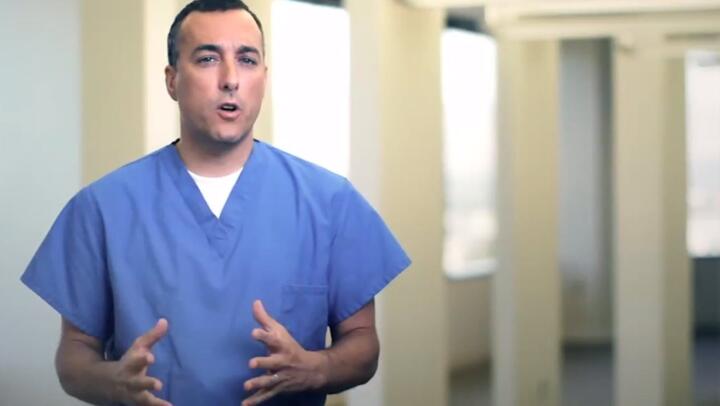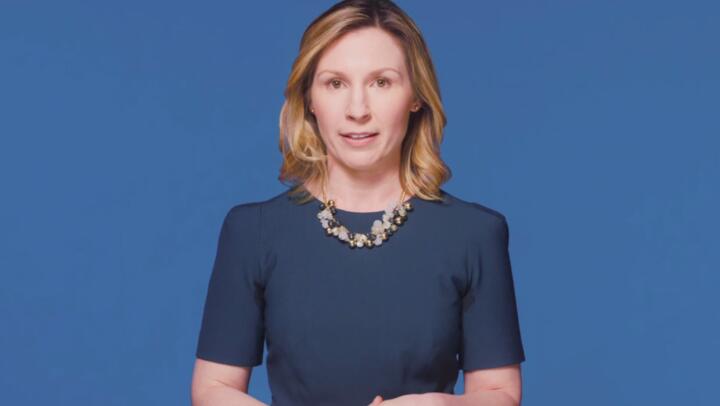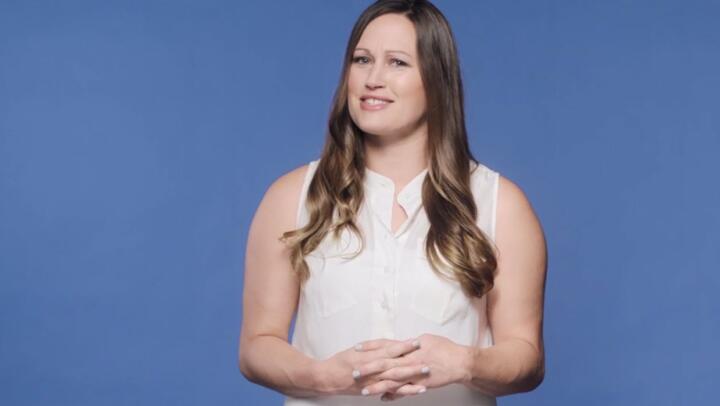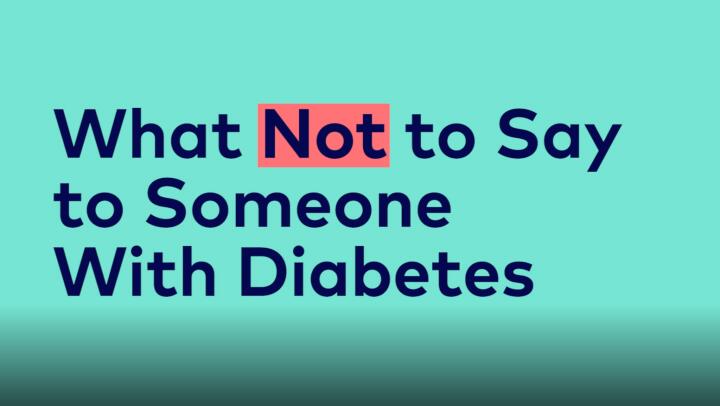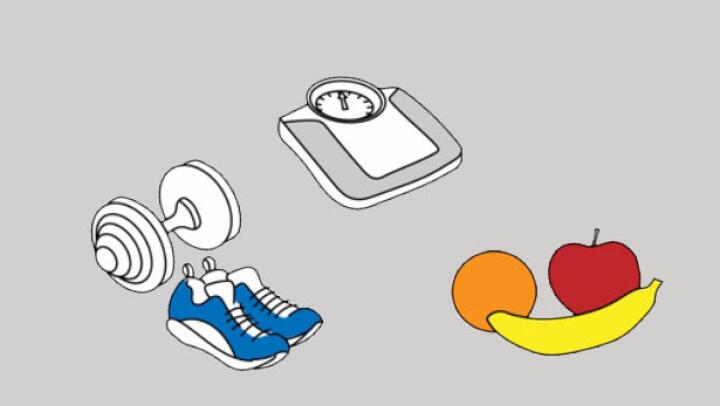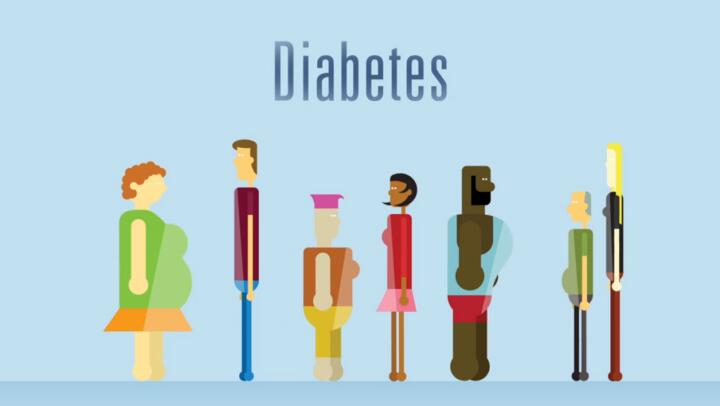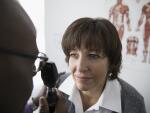Type 1 Diabetes: 10 Things Doctors Want You to Know

Medically Reviewed By William C. Lloyd III, MD, FACS
Written By Nancy LeBrun on February 18, 2021
-
 Your Role in Managing Your Type 1 DiabetesIf you have type 1 diabetes, you know your pancreas doesn’t produce any or enough insulin, the hormone the body uses to get glucose (sugar) into your blood to keep your body functioning. Unlike many other chronic medical conditions, people with diabetes play a major role in managing their disease themselves, working with their healthcare team to learn how to maintain safe blood sugar levels. Here’s what top medical professionals say about type 1 diabetes.
Your Role in Managing Your Type 1 DiabetesIf you have type 1 diabetes, you know your pancreas doesn’t produce any or enough insulin, the hormone the body uses to get glucose (sugar) into your blood to keep your body functioning. Unlike many other chronic medical conditions, people with diabetes play a major role in managing their disease themselves, working with their healthcare team to learn how to maintain safe blood sugar levels. Here’s what top medical professionals say about type 1 diabetes. -
 1. “Managing diabetes is like a four-legged stool: If any of the legs are broken the stool won’t stand up well.”The four-legged stool includes “checking your glucose, giving yourself insulin, trying to maintain a good diet, and exercise,” says Anikit Sidhaye, MD, an endocrinologist with Johns Hopkins Medicine in Baltimore. “This is a condition like no other. A lot of work has to be done by the patients themselves in terms of monitoring their diet, making judgments about what to eat [and] when to eat, and thinking about their glucose all the time—something people who don’t have diabetes really don’t have to do,” Dr. Sidhaye adds.
1. “Managing diabetes is like a four-legged stool: If any of the legs are broken the stool won’t stand up well.”The four-legged stool includes “checking your glucose, giving yourself insulin, trying to maintain a good diet, and exercise,” says Anikit Sidhaye, MD, an endocrinologist with Johns Hopkins Medicine in Baltimore. “This is a condition like no other. A lot of work has to be done by the patients themselves in terms of monitoring their diet, making judgments about what to eat [and] when to eat, and thinking about their glucose all the time—something people who don’t have diabetes really don’t have to do,” Dr. Sidhaye adds. -
-
 2. “In the case of T1, it’s nobody’s fault, you just have this thing.”Type 1 diabetes is an autoimmune disorder that often develops in childhood but can appear in people of any age. “I have a sign on my door that says, ‘Diabetes is the hobby no one wants,’” says Daen Scott, a nurse practitioner at UC’s Diabetes and Endocrinology Clinic in Loveland, Co. “People who don’t have [type 1 diabetes] don’t realize how much of your day is spent dealing with it, not just testing and calculating insulin doses and taking insulin, but having to make a conscious decision about food and constantly thinking, ‘Where is my blood sugar right now? Is it safe for me to drive?’ It’s a lot of work and those challenges don’t change over the life span.”
2. “In the case of T1, it’s nobody’s fault, you just have this thing.”Type 1 diabetes is an autoimmune disorder that often develops in childhood but can appear in people of any age. “I have a sign on my door that says, ‘Diabetes is the hobby no one wants,’” says Daen Scott, a nurse practitioner at UC’s Diabetes and Endocrinology Clinic in Loveland, Co. “People who don’t have [type 1 diabetes] don’t realize how much of your day is spent dealing with it, not just testing and calculating insulin doses and taking insulin, but having to make a conscious decision about food and constantly thinking, ‘Where is my blood sugar right now? Is it safe for me to drive?’ It’s a lot of work and those challenges don’t change over the life span.” -
 3. “Give yourself a break if your blood sugar levels are not always where you want them to be, and learn from it.”“There are random times when the glucose is high or low and you’re not exactly sure why that is. If that happens, look for wider patterns in terms of good self-care,” says Dr. Sidhaye. “Sometimes patients get frustrated with the isolated high or low glucose and I try to encourage them that [it’s] OK. As long as the pattern is heading in the right direction, try not to get too frustrated, and with time there’s better understanding of why [changes occur].”
3. “Give yourself a break if your blood sugar levels are not always where you want them to be, and learn from it.”“There are random times when the glucose is high or low and you’re not exactly sure why that is. If that happens, look for wider patterns in terms of good self-care,” says Dr. Sidhaye. “Sometimes patients get frustrated with the isolated high or low glucose and I try to encourage them that [it’s] OK. As long as the pattern is heading in the right direction, try not to get too frustrated, and with time there’s better understanding of why [changes occur].” -
 4. “Diabetes distress is psychological stress directly related to the management of the disease.”“If you have depression and it’s making it hard to manage your diabetes, that’s not diabetes distress, but if you are stressed out by the reality of the diabetes itself, that’s diabetes distress. That can have a major negative impact,” says Scott. But doctors say it’s important to manage emotional symptoms so you can stay focused on preventing physical ones. “If you don’t take care of this [disease] and you let it get ahead of you,” it can lead to serious health issues, notes Mark Schutta, MD, medical director, Penn Rodebaugh Diabetes Center in Philadelphia. “Generally, when somebody comes to me at 18, I don’t see any evidence of complications, but between 18 and 30, I’ve seen amputations, kidney failure, heart attacks, blindness. The sad part is [it’s] completely preventable [with proper treatment],” Schutta adds.
4. “Diabetes distress is psychological stress directly related to the management of the disease.”“If you have depression and it’s making it hard to manage your diabetes, that’s not diabetes distress, but if you are stressed out by the reality of the diabetes itself, that’s diabetes distress. That can have a major negative impact,” says Scott. But doctors say it’s important to manage emotional symptoms so you can stay focused on preventing physical ones. “If you don’t take care of this [disease] and you let it get ahead of you,” it can lead to serious health issues, notes Mark Schutta, MD, medical director, Penn Rodebaugh Diabetes Center in Philadelphia. “Generally, when somebody comes to me at 18, I don’t see any evidence of complications, but between 18 and 30, I’ve seen amputations, kidney failure, heart attacks, blindness. The sad part is [it’s] completely preventable [with proper treatment],” Schutta adds. -
 5. “People with type 1 respond to food differently, so plan your meals accordingly.”“A person with diabetes doesn’t need to eat special food. A healthy diet for someone with diabetes is a healthy diet for anyone,” says Dr. Schutta. “If your friend with diabetes takes a little extra insulin and has a piece of birthday cake, that’s OK.” Knowing how food affects your blood sugar is essential though. “You have to individualize it because everybody’s physiology is different; everybody’s degree of insulin resistance is different. I have patients who use exercise to sensitize their insulin. They’ll take less insulin with dinner, then hop on the treadmill for 45 minutes, watch some TV, and their sugar starts to move down.”
5. “People with type 1 respond to food differently, so plan your meals accordingly.”“A person with diabetes doesn’t need to eat special food. A healthy diet for someone with diabetes is a healthy diet for anyone,” says Dr. Schutta. “If your friend with diabetes takes a little extra insulin and has a piece of birthday cake, that’s OK.” Knowing how food affects your blood sugar is essential though. “You have to individualize it because everybody’s physiology is different; everybody’s degree of insulin resistance is different. I have patients who use exercise to sensitize their insulin. They’ll take less insulin with dinner, then hop on the treadmill for 45 minutes, watch some TV, and their sugar starts to move down.” -
-
 6. “Exercise is important but you have to know what it does to your blood sugar.”“The issue is there are two effects of exercise on diabetes. One of them is the anaerobic effect of [exercises like] weight training. When you do short bursts, your body secretes a lot of glucocorticoids and that’s a normal thing,” says Dr. Schutta. “But when you’re a diabetic, your sugar may go up while you’re engaged in that exercise. What we try to do is educate patients: If you’re going to do those kinds of exercises, try also to do aerobic exercise afterwards for 10, 15 minutes. That will sensitize the insulin and bring the sugar down.”
6. “Exercise is important but you have to know what it does to your blood sugar.”“The issue is there are two effects of exercise on diabetes. One of them is the anaerobic effect of [exercises like] weight training. When you do short bursts, your body secretes a lot of glucocorticoids and that’s a normal thing,” says Dr. Schutta. “But when you’re a diabetic, your sugar may go up while you’re engaged in that exercise. What we try to do is educate patients: If you’re going to do those kinds of exercises, try also to do aerobic exercise afterwards for 10, 15 minutes. That will sensitize the insulin and bring the sugar down.” -
 7. “New technologies are changing type 1 diabetes management for patients.”Cutting-edge glucose monitors and insulin pumps are game changers. “The hybrid closed-loop systems are transformative technologies. They create real freedom and much less worry for patients,” says Dr. Schutta. “I have a patient in her early 70s who has had type 1 diabetes her whole life. Her A1Cs typically run 7.8 to 8.5. Her husband—for over 20 years every night at 2 or 3 a.m.—would wake up and check her blood sugar. We gradually ramped up her technology over three months. She no longer checks any finger sticks, her husband looks like he’s 10 years younger because he’s sleeping through the night, she’s had no hyperglycemia—none—and her A1C was 6.8, the lowest she’s ever had.”
7. “New technologies are changing type 1 diabetes management for patients.”Cutting-edge glucose monitors and insulin pumps are game changers. “The hybrid closed-loop systems are transformative technologies. They create real freedom and much less worry for patients,” says Dr. Schutta. “I have a patient in her early 70s who has had type 1 diabetes her whole life. Her A1Cs typically run 7.8 to 8.5. Her husband—for over 20 years every night at 2 or 3 a.m.—would wake up and check her blood sugar. We gradually ramped up her technology over three months. She no longer checks any finger sticks, her husband looks like he’s 10 years younger because he’s sleeping through the night, she’s had no hyperglycemia—none—and her A1C was 6.8, the lowest she’s ever had.” -
 8. “Getting psychological and emotional support can be hugely helpful.”Look for a psychologist who can help you if you feel overwhelmed by your type 1. “Be persistent about it. If it doesn’t work out with one psychologist, it doesn’t mean it’s not going to work out with someone else,” says Dr. Sidhaye. “You have to find someone who is a good fit, and, if possible, find someone who has experience taking care of patients with chronic medical conditions, either a mental health social worker or a psychologist.”
8. “Getting psychological and emotional support can be hugely helpful.”Look for a psychologist who can help you if you feel overwhelmed by your type 1. “Be persistent about it. If it doesn’t work out with one psychologist, it doesn’t mean it’s not going to work out with someone else,” says Dr. Sidhaye. “You have to find someone who is a good fit, and, if possible, find someone who has experience taking care of patients with chronic medical conditions, either a mental health social worker or a psychologist.” -
 9. “Get used to the idea of telling family and friends about your type 1 diabetes.”“Letting people know about your type 1 diabetes is one of the most underutilized pieces of diabetes management. Do your family and friends know what a low blood sugar looks like and know what to do about it? Is it acceptable for them to remind you to test? I think it’s vital, because diabetes is largely invisible,” says Scott. In addition to recommending patients wear medical alert bracelets or other IDs, Dr. Schutta says, “We strongly encourage all of our patients to make sure everybody knows what they’re dealing with, just in case they get into any trouble or need some help.”
9. “Get used to the idea of telling family and friends about your type 1 diabetes.”“Letting people know about your type 1 diabetes is one of the most underutilized pieces of diabetes management. Do your family and friends know what a low blood sugar looks like and know what to do about it? Is it acceptable for them to remind you to test? I think it’s vital, because diabetes is largely invisible,” says Scott. In addition to recommending patients wear medical alert bracelets or other IDs, Dr. Schutta says, “We strongly encourage all of our patients to make sure everybody knows what they’re dealing with, just in case they get into any trouble or need some help.” -
 10. “The future looks good for staying healthier with type 1 diabetes.”Medical and technological advances are changing the outlook when it comes to type 1 diabetes. “T1 is a completely manageable problem. If you come along with your doctors and nurses and follow some guidelines and rules, you should live a completely normal life,” says Dr. Schutta. “It shouldn’t shorten your lifespan and you shouldn’t get any complications from this disease. Every day, that statement is reinforced. We have a lot of data now in the past eight years or so that shows the mortality of people with type 1 is fast approaching [that of] the normal population.”
10. “The future looks good for staying healthier with type 1 diabetes.”Medical and technological advances are changing the outlook when it comes to type 1 diabetes. “T1 is a completely manageable problem. If you come along with your doctors and nurses and follow some guidelines and rules, you should live a completely normal life,” says Dr. Schutta. “It shouldn’t shorten your lifespan and you shouldn’t get any complications from this disease. Every day, that statement is reinforced. We have a lot of data now in the past eight years or so that shows the mortality of people with type 1 is fast approaching [that of] the normal population.”
Type 1 Diabetes: 10 Things Doctors Want You to Know

